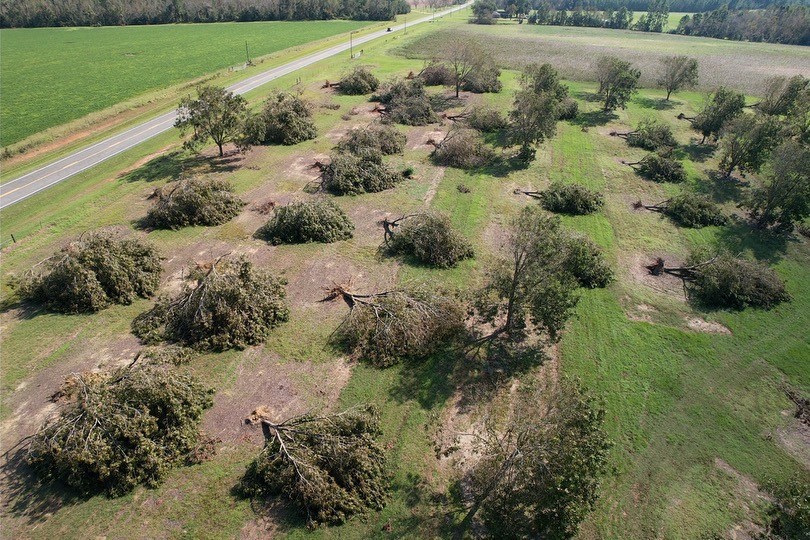
By Clint Thompson
A pecan grower’s instinct following a high-wind event is to save as many trees as they can. For producers in Southeast Georgia following Hurricane Helene, the trouble in salvaging a leaning tree may not be worth the time and expense. The tree may still end up dying or be useless over time.
Lenny Wells, University of Georgia Extension pecan specialist, explains the challenge of correcting a tree that’s been knocked over by strong winds.

“The first instinct with a leaning tree for most growers is to stand it up. Sometimes that can work. It’s going to be more successful on the smaller trees,” Wells said. “Once you get a tree that’s 8 to 10 inches in diameter or more, once it’s leaned 30 degrees or more, your chances of success in propping that tree back up diminish. Even if you are able to do that and the tree survives, most of the time those trees will either be weak or slowly die back over time or won’t be as productive as they would have been. More often than not, those trees are going to be the first ones to blow over in the next storm that comes through.”
What’s Needed?
Pecan producers who are still bent on saving as many trees as possible will need to cut the trees back until they are approximately 12 or 14 feet tall.
“You basically cut most all of the limbs off of them. If you’re going to prop one up like that, it’s really the only chance it has. What happens is that tree gets leaned over and the further it leans, roots are going to break, and then when you prop it back up, sometimes you can break more roots doing that. When those trees have that big canopy on them lose roots, they just don’t have the roots left to support the top of that tree,” Wells said.
“It’s kind of like planting a new tree. It has to grow roots and then it has to grow the top of that canopy back, so more often than not, you’re going to be better off just planting a new tree.”









